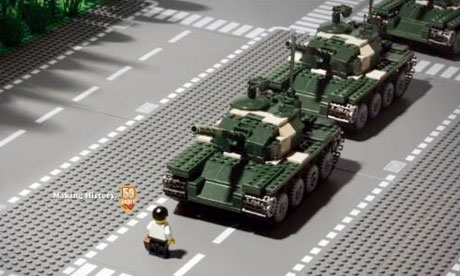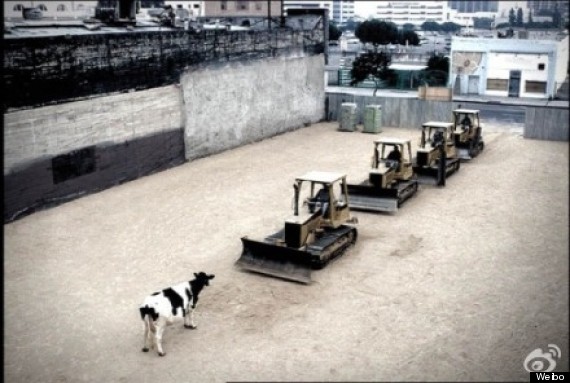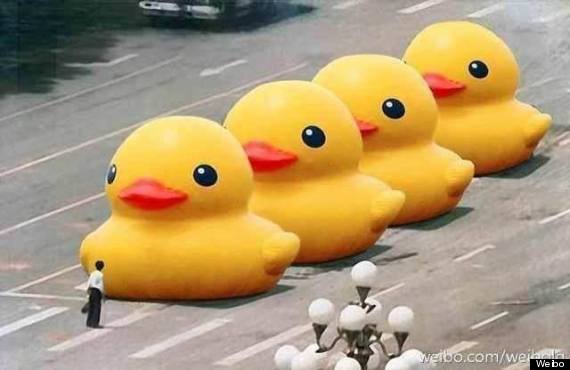Although China has undergone dramatic economic changes in the years since, its communist government remains authoritarian in practice. Officials are quick to crack down on dissent, limiting freedom of speech and other basic civil liberties.
Television, film and print media have long been under the government's strict control. And while the internet presents greater censorship challenges, the government has acted aggressively to limit access to search engines like Google, and filter content deemed subversive.
As memory of this tragedy doesn't exactly cast the Chinese government in the most positive light, it's hardly surprising that they'd try to wipe out - or rewrite - as much information on it as possible. In fact, Chinese history textbooks are notorious for omitting any reference to Tiananmen Square and other incidents of government suppression.
As George Orwell wrote in his dystopian novel "1984" (which is also widely censored):
“He who controls the past controls the future. He who controls the present controls the past.”
"Today", "Tonight", "June 4", and "Anniversary" have been among the many blocked words and terms on Weibo, the Twitter-esque site, which has more than half a billion registered users in China. In recent years, more obscure workaround references, like "May 35" and "63 plus 1" have also popped up and been subsequently blacklisted.
So what about the "big yellow duck"?
Chinese censors banned the term after the above image went viral on the social media site. The clever meme reinvents the iconic "Tank Man" image from the 1989 protest. The original image, captured by Associated Press photographer Jeff Widener, shows a young man standing in front of four tanks, blocking them from moving forward (see original video footage above).
Because the real photo is, not surprisingly, nowhere to be found on Chinese websites, some clever artist created the duck image in its place.
When government censors got wind of the image, they apparently failed to see the humor in it and didn't hesitate to add "big yellow duck" to the long and growing list of forbidden search terms.
Roughly a third of today's Chinese citizens were born after the 1989 protests. And with little historical information of the event on record, a huge chunk of the population -- as many as 400 million young people -- are likely to be largely unaware of this pivotal event in their nation's history.
"The education system and the vast apparatus that censors the Chinese media and Internet have done such a formidable job at eliminating references to the events of 1989 that many young people are unaware of what happened or have only a faint notion of what happened," Jeremy Goldkorn, the founder of Danwei, a Beijing-based firm that tracks Chinese media, told Agence France-Presse .
"The result is that many young people who do not remember 1989 themselves would need an unusual degree of curiosity to look for information about what happened."
Despite the government's ongoing efforts to erase undesirable history, the duck meme inspired other clever re-imaginings of the original image. Here are a few of them:




